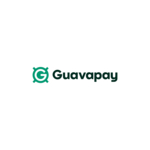Global Proximity Payment Market By Offering, By Application, By Regional Outlook, Industry Analysis Report and Forecast, 2021 – 2027
The Global Proximity Payment Market size is expected to reach $26. 4 billion by 2027, rising at a market growth of 11. 6% CAGR during the forecast period. With proximity payment technology, devices can communicate and carry out payment generally within a distance of 4 cm.
New York, Dec. 03, 2021 (GLOBE NEWSWIRE) — Reportlinker.com announces the release of the report “Global Proximity Payment Market By Offering, By Application, By Regional Outlook, Industry Analysis Report and Forecast, 2021 – 2027” – https://www.reportlinker.com/p06188491/?utm_source=GNW
This mode of payment enables customers to pay for goods and services via smartphones and other devices at a physical point-of-sale (POS) terminal. In addition, a smartphone that utilizes Near Field Communication (NFC) technology can initiate proximity payment. Additionally, in NFC payment, the reader and payment devices must be close to each other in order to initiate the transaction, so that NFC chips can exchange cryptographic data to finish the transaction.
Moreover, the growth of the proximity payment market is directly proportional to the growth in acceptance of smartphones and penetration of high-speed internet, and growing utilization of proximity payments among the merchants. The expansion and growth of mobile point of sale (mPOS) infrastructure have been increased due to the growing popularity of mobile-based proximity payments. In addition, the emerging trend in the mPOS framework is due to the higher shift toward a cashless system and the arrival of in-person payment experiences. Additionally, merchants, restaurants, and retailers are the biggest end-user segments that accepted proximity payments methods in their current businesses.
COVID-19 Impact
The outbreak of the COVID-19 pandemic has had a substantial impact on the proximity payment market. Factors such as high utilization and adoption of online & digital payment methods among consumers across the world are responsible for this. In addition, banks and retailers have been swift in responding to the panic situation emerging out of COVID-19 and hence raised the limits on their proximity payment transactions so that payments of high value can be initiated without having to touch the terminal. As a result, the proximity payment market has witnessed a massive demand during the COVID-19 pandemic. Since the onset of the COVID-19 pandemic, the inclination towards proximity payments has substantially grown. This is attributed to the fact that banks, merchants, and fintech industries are putting efforts to cut down their operational costs and enhancing the digital experience for their customers.
Market Growth Factors:
Safer and streamlined and mechanism of proximity payment
The proximity payments can be done within the span of 15 seconds and are significantly faster as compared to traditional payment methods. With a low amount of handling and processing of cash happening, transactions are finished at a rapid rate. As a result, turnover would increase and queues are a highly unlikely scenario. In proximity payments, there is no requirement for pin number as a transaction only requires a tap on a reader, the number of staff behind the management and handling of payment is significantly reduced.
Growing acceptance of Smartphones and penetration of high-speed Internet
Countries such as India, Canada, and China have witnessed an increasing adoption rate of smartphones in the last couple of years. Additionally, the penetration of 3G and 4G connectivity has allowed customers to achieve seamless access to conduct payments on their smartphones. In addition, the growth of the proximity payment market would be fueled by the massive traction of 5G networks across North America, Europe, Asia, and the Middle East. Moreover, massive development in the distribution network of smartphone organizations has increased the availability of smartphones for end users.
Market Restraining Factor:
Concerns about data security and breaches during payments
Cutting-edge payment technologies provide a host of benefits and convenience to customers. Conversely, the growth of the proximity payment market would be hindered by the growing number of concerns about data security and breaches. As a result, consumers are not willing to initiate payments through proximity payment, as they are worried about the risk of their financial data being accessed by third-party mobile service vendors.
Offering Outlook
Based on Offering, the market is segmented into Solution and Services. The Solution market dominated the Global Proximity Payment Market by Offering 2020, and would continue to be a dominant market till 2027. The Services market is expected to witness a CAGR of 14% during (2021 – 2027).
Application Outlook
Based on Application, the market is segmented into Grocery Stores, Drug Stores, Bars & Restaurants, Entertainment Centers, and Others. The grocery stores segment obtained the prominent revenue share of the proximity payment market in 2020. The growth of the segment has been fueled due to the massive adoption and installation of proximity payment services by a number of food & grocery stores owners in order to increase the speed of the transaction and to appeal to a huge customer base.
Regional Outlook
Based on Regions, the market is segmented into North America, Europe, Asia Pacific, and Latin America, Middle East & Africa. APAC would showcase the display growth rate throughout the forecasting period. Factors such as increasing adoption of modern payment technologies like QR codes, biometrics, and cryptocurrencies among the merchants, retailers, and restaurants and higher smartphones penetration and internet utilization in the region are responsible for the massive growth of the APAC region.
The major strategies followed by the market participants are Product Launches. Based on the Analysis presented in the Cardinal matrix; Apple, Inc. and Google, LLC are the forerunners in the Proximity Payment Market. Companies such as Mastercard, Visa Inc., PayPal Holdings Inc. are some of the key innovators in the market.
The market research report covers the analysis of key stake holders of the market. Key companies profiled in the report include Fidelity Information Services (FIS), Inc., PayPal Holdings, Inc., Visa, Inc., Mastercard, Inc., Apple, Inc., Square, Inc., Google, LLC, Ingenico, ACI Worldwide, Inc. and IDEMIA SAS.
Recent Strategies Deployed in Proximity Payment Market
Partnerships, Collaborations and Agreements:
Sep-2021: IDEMIA formed a partnership with Agence Nationale des Titres Sécurisés (ANTS), a government agency of France. The partnership aimed to facilitate the country’s citizens to prove their identity and complete online transactions through a smartphone. Moreover, the partnership would empower French citizens to put their national electronic identification (eID) card termed as CNI or carte nationale d’identité, on the back of their smartphones and have their identity immediately confirmed.
Sep-2021: Visa partnered with Innoviti Payment Solutions, India’s largest provider of payment solutions to offline enterprise merchants. The partnership aimed to boost a Proof of Concept (POC) for offline payments in India. Moreover, Innoviti implemented POC by forming a partnership with Axis Bank and Yes Bank.
Jun-2021: ACI extended its partnership with Pick n Pay, a grocery, clothing, and general merchandise retailer based in South Africa. This extended partnership aimed to boost payments modernization for the South African retailing leader. Under this partnership, Pick n Pay would use ACI Omni-Commerce, a safe, validated point-to-point encryption (P2PE) omnichannel payments platform that offers a secure, consistent, and streamlined payments experience to customers across all channels, whether in-store, online, or mobile.
Jun-2021: Mastercard came into a partnership with Eazy Financial Services, a FinTech & Payment service provider based in Bahrain. The partnership aimed to offer SMEs and micro merchants digital payment tools and access to financial services that would boost the inclusive economic development in Bahrain. The partnership would support the expansion of Eazy’s services and enhance access, opportunities, and connections within the digital payment’s ecosystem of the country.
May-2021: ACI extended its partnership with KNET, Kuwait’s national electronic banking company. Through this extended partnership, the companies would roll out various latest and advanced digital payment services to support their customers during the COVID-19 pandemic.
Apr-2021: IDEMIA partnered with IDEX Biometrics, a Norwegian biometrics company, specializing in fingerprint imaging and fingerprint recognition technology. The partnership aimed to roll out the latest biometric payment card. The card contains the latest TrustedBio sensor from IDEX Biometrics and would enable the users to authorize payments through fingerprint recognition.
Mar-2021: ACI came into a partnership with InComm Payments, a leading payments technology company. The partnership aimed to bring digitalization in cash payments by using a barcode payment token providing a streamlined experience for consumers to pay bills.
Mar-2021: IDEMIA came into a partnership with Cybernetica, the leader in secure data transmissions and digital identity. The partnership aimed to provide governments and other interested parties with the latest two-in-one digital ID solution.
Feb-2021: IDEMIA entered into a partnership with HUBUC, a vendor of embedded financial services. Under this partnership, HUBUC would introduce payment cards supported by dynamic CVV technology from IDEMIA for superior and safe online shopping. Following the partnership, HUBUC would provide clients with secure payment cards built on the MOTION CODE technology of IDEMIA.
Feb-2021: IDEMIA formed a partnership with Fintech Australia, a peak body for Australian financial services, technology, and innovation. Under this partnership, IDEMIA would leverage its R&D experience to offer support for Fintech Australia’s awards, events, and overall community activities.
Jan-2021: IDEMIA partnered with IndusInd Bank, a new-generation Indian bank. Through this partnership, IndusInd Bank would introduce its first metal credit card called PIONEER Heritage. The latest metal credit card is integrated with world-class capabilities and benefits across categories such as wellness, travel, lifestyle, and among others. Moreover, the card provides exclusivity to wealthy customers of IndusInd Bank by offering them an enriched payment experience powered by advanced technology.
Jan-2021: Mastercard together with NMI and Global Payments entered into a partnership with Computer Engineering Group (CEG), an independent IT Services provider. Under this partnership, the companies would introduce its first live Cloud Tap on Phone pilot. The solution would assist Mastercard in improving its Tap on Phone product and enable ecosystem partners to design their own cloud-based products with the latest tools and offerings.
Jan-2021: Visa entered into a partnership with TransferWise, a London-based financial technology company. Through this partnership, the companies would utilize Visa Cloud Connect for the first time which is the latest method for fintech and partners to safely connect Visa’s global processing network, VisaNet, through the cloud. Visa Cloud Connect would help the expansion of multi-currency debit cards of TransferWise in the Asia Pacific, Europe, Latin America and the Caribbean, the Middle East, the U.K., and the U.S.
Dec-2020: FIS entered into a partnership with VISA, an American multinational financial services corporation. Through this partnership, FIS rolled out its token management service. Following the partnership, the company would offer clients access to industry-leading tokenization offerings from Visa that can assist in decreasing the risk of data theft while retaining customers with the help of uninterrupted commerce and enhancing card, not present authorization rates. Moreover, the two entities would offer online merchants and partners access to Visa Token Service to secure their payments environment and bolster their digital commerce strategy.
Nov-2020: Mastercard partnered with TSYS and Extend. Through the partnership, the companies would launch a mobile virtual card solution that allows virtual corporate cards to be easily integrated into a mobile wallet for rapid and safe contactless payments. Moreover, the latest solution would fulfill the increasing demand for digital, contactless commercial payments, which has been increased by the shifting nature of work and business expenses during the pandemic, and the advent of the work-from-home economy.
Acquisitions and Mergers:
Sep-2021: Mastercard signed an agreement to acquire Aiia, a leading European open banking technology vendor providing a direct connection to banks through a single API. The acquisition would support Mastercard’s efforts in the European open banking market and enable the company to continue to fulfill its customers at any place.
Aug-2021: Square signed a Scheme Implementation Deed with Afterpay to acquire all of the issued shares in Afterpay. The acquisition would facilitate the companies to better offer innovative financial products and services that expand access to more consumers and boost incremental revenue for every kind of merchant.
Jul-2021: Google completed the acquisition of pring, a Japan-based cashless payments startup. The acquisition aimed to provide Google access to pring’s broad partner network that includes 50 national banks and key companies like 7-Eleven. Through this partnership, Google would introduce proprietary financial services in Japan.
May-2021: PayPal took over Happy Returns, a company that works with online merchants so customers can return unwanted merchandise at above 2,600 drop-off locations across the US. The acquisition aimed to enable retailers with software to better manage returns.
Mar-2021: Mastercard acquired the majority of the Corporate Services business of Nets, a leading European PayTech company. The acquisition aimed to support a wide range of account-to-account capabilities, including clearing and settlement instant payment infrastructure, bill payment, and E-invoicing applications.
Aug-2020: Apple took over Mobeewave, a Canadian-based startup that allows any mobile app to accept in-person payments with no extra hardware. The acquisition aimed to bring transformation in iPhones into mobile payment terminals.
Product Launches and Product Expansions:
Sep-2021: Apple introduced an Advanced Fraud Protection feature for Apple Card customers. Through the launch, the company would allow its customer to turn on a toggle that can change the Card Verification Value (CVV).
Sep-2021: Square introduced Cash App Pay, a new contactless payment method for both online and in-person transactions. Through this launch, the company would help consumers to smoothly pay with their Cash App account at participating square sellers. The app would help customers to simply scan the QR code of a seller at checkout, or click a button on their mobile device for a payment process that is rapid, elegantly designed, and safer for in-person as well as online transactions.
Apr-2021: Worldline introduced the latest new AXIUM platform and POS AXIUM platform. Through this launch, the company aimed to boost the digital transformation of commerce. Worldline launched POS AXIUM with the help of its Ingenico brand and the solution is the latest in series of developments in Ingenico’s evolution as an ecosystem enabler and the most reliable technology partner in the new world of payments acceptance.
Mar-2021: PayPal rolled out its latest PayPal app, an all-in-one, customized app that provides customers the best place to manage their financial lives. Through this launch, the company would launch new capabilities such as PayPal Savings, the latest high yield savings account offered by Synchrony Bank, together with the latest in-app shopping tools that would allow customers to earn rewards redeemable for cash back or PayPal shopping credit and uncover deals with hundreds of merchants.
Dec-2020: Apple launched Apple Pay in Mexico. Through this launch, the company expanded its geographical footprints in the country and cater to the demand of its existing customers.
Geographical Expansions:
Sep-2021: Square expanded its geographical reach by introducing its solutions in France. Through this expansion, the company would help small businesses and large enterprises across France to access Square’s advanced ecosystem with the tools they need to start, run, grow, and adapt their businesses.
Mar-2020: Mastercard expanded its geographical reach by increasing the contactless payment limits across the Latin America and Caribbean region. Through these expanded limits, the company would support individuals who are looking for secure methods to pay during the COVID-19 pandemic.
Scope of the Study
Market Segments covered in the Report:
By Offering
• Solution
• Services
By Application
• Grocery Stores
• Drug Stores
• Bars & Restaurants
• Entertainment Centers
• Others
By Geography
• North America
o US
o Canada
o Mexico
o Rest of North America
• Europe
o Germany
o UK
o France
o Russia
o Spain
o Italy
o Rest of Europe
• Asia Pacific
o China
o Japan
o India
o South Korea
o Singapore
o Malaysia
o Rest of Asia Pacific
• LAMEA
o Brazil
o Argentina
o UAE
o Saudi Arabia
o South Africa
o Nigeria
o Rest of LAMEA
Companies Profiled
• Fidelity Information Services (FIS), Inc.
• PayPal Holdings, Inc.
• Visa, Inc.
• Mastercard, Inc.
• Apple, Inc.
• Square, Inc.
• Google, LLC
• Ingenico
• ACI Worldwide, Inc.
• IDEMIA SAS
Unique Offerings
• Exhaustive coverage
• Highest number of market tables and figures
• Subscription based model available
• Guaranteed best price
• Assured post sales research support with 10% customization free
Read the full report: https://www.reportlinker.com/p06188491/?utm_source=GNW
About Reportlinker
ReportLinker is an award-winning market research solution. Reportlinker finds and organizes the latest industry data so you get all the market research you need – instantly, in one place.
__________________________
CONTACT: Clare: [email protected] US: (339)-368-6001 Intl: +1 339-368-6001



































